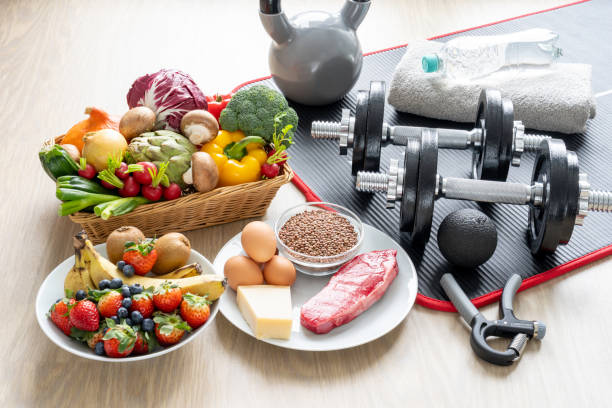Maintaining physical and mental health and well-being requires a well-balanced diet as well as frequent exercise. These are not only useful in avoiding excess weight gain or sustaining weight reduction but they are also linked to enhanced sleep and happiness. Physical activity increases brain function and results in enhanced mood and general health.
Thus, it is important to know the significance of a good diet if you exercise on a regular basis. Let’s check it out in the text below!
Start with a Good Breakfast
Obesity, diabetes, and heart disease have all been related to not having breakfast on a regular basis. A good breakfast can help refill your blood sugar, which your body needs to fuel your muscles and brain.
It’s especially crucial to eat a nutritious breakfast on days when you plan to work out. If you skip breakfast, you may feel woozy or sluggish during your workout. It’s critical to eat the correct sort of breakfast. A toast or muffin will not satisfy you for long.
A fiber- and protein-rich breakfast, on the other hand, may keep hunger at bay for longer and offer the energy you need to keep exercising.
Low-energy dense meals have a little number of calories per unit of weight. Foods that are high in energy density are the polar opposite. They contain a lot of calories packed into a tiny amount of food. You’ll feel less hungry without consuming too many calories if you choose low-energy-dense items.
Take, for example, fruits and vegetables. Because they are abundant in water, they help you feel fuller with fewer calories, especially when compared to oil or butter.
Make sure to include some fruits or veggies in your morning meal. For example, you could consume a banana, cherry tomatoes, or watermelon chunks. Or, you can start your day with a great vegan bodybuilders breakfast, including a green hero vegan smoothie.
This tropical delight has the ideal fruit-to-veggie ratio, making it a wonderful green smoothie even for beginners. Spinach has a mild flavor and is abundant in nutrients, vitamins, minerals, and high-quality amino acids, to name a few. It’s awe-inspiring stuff!
Include Snacks
Most individuals can have little snacks before and during exercise, and it all depends on how they feel. Make the selections that will benefit you the greatest. Snacks consumed just before exercise are unlikely to provide additional energy if your training is shorter than 60 minutes, but they may help you avoid distracting hunger sensations. If your training lasts longer than 60 minutes, consuming a carbohydrate-rich snack or beverage may be beneficial.
Fruit and Vegetable
Natural fiber, vitamins, minerals, and other chemicals are abundant in fruits and vegetables, which your body requires to function correctly. At each meal, aim to have half of your plate filled with fruits and vegetables.
Choose fruits and vegetables of various hues. This will allow you to take advantage of the complete spectrum of nutrients, minerals, and antioxidants available in the produce section.
Every time you go to the supermarket, try a different fruit or vegetable. Put dried fruits in your gym bag and fresh vegetables in the fridge for snacks.
After Exercising
If feasible, consume a meal that combines both carbs and protein within two hours of your workout activity to aid muscle recovery and replenish glycogen levels. Think about having a snack if your dinner is more than two hours away. Foods to eat after an exercise include fruit and yogurt, a sandwich with peanut butter, or a smoothie for post-workout recovery.
Don’t Forget the Water
Don’t forget to stay hydrated. Drink lots of water prior, during, and after your workout to minimize dehydration.
Water is the most effective approach to replenishing lost fluids. If you’re exercising for more than an hour, though, you should consume a sports drink. Because sports drinks include carbs, they can assist maintain your body’s electrolyte balance while also providing a boost of energy.
Individuals who engage in high-intensity exercise, such as running, bicycling, or team sports, as well as strength training, should increase their protein intake to help with muscle regeneration. It’s critical to assess the type and duration of exercise in order to calculate the increased calorie need.
You’ll probably find which meals offer you the greatest energy and which have negative consequences as you adapt to an active lifestyle. The trick is to learn to listen to your body and strike a balance between what feels good and what is beneficial for you.
Make breakfast a priority, and have nutritious exercise snacks in your refrigerator and gym bag. Carbs, protein, and other nutrients in the appropriate proportions can help bolster your workout.
